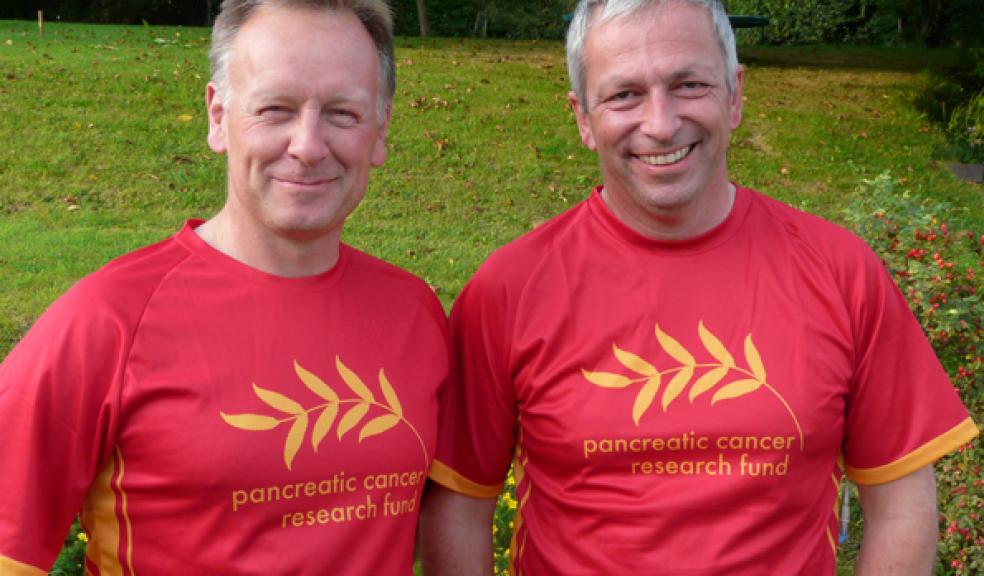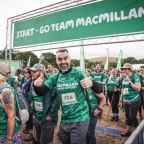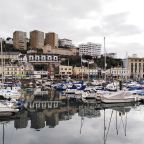
Derriford Doctor to re-run his commando test for charity
A consultant anaesthetist from Derriford Hospital in Plymouth, who was diagnosed with pancreatic cancer last year, will take on a challenge in a couple of weeks when he re-runs his commando test to raise important funds for the Pancreatic Cancer Research Fund.
Nearly 25 years ago, David Birt from Tavistock completed the All Arms Commando Course as a Royal Navy doctor. It was the start of a life-long association with the Commando Brigade that started on Dartmoor and has taken him to Norway, the Balkans, twice to both Iraq and Afghanistan and most recently on board ship in the Gulf of Aden. When not on active service he works as a consultant anaesthetist in Derriford Hospital, Plymouth.
The final Commando Test is the ‘30-miler’, an arduous yomp across Dartmoor to be completed in eight hours. Those who successfully complete the course that day are presented with the coveted Green Beret there and then.
On Monday 29 September, David will take on the challenge once more. He aims to re-run the 30-miler, following his original route, to raise money for research into the disease he now faces. He hopes to complete this in less than 12 hours - no mean feat for a 49 year old – but doubly challenging as he has to cope with chemotherapy treatment every fortnight. The endeavour will need him to draw on all the elements of Commando Spirit - Courage, Determination, Unselfishness and Cheerfulness in the Face of Adversity.
David will be accompanied by his son, Harry (20) and three friends with whom he has deployed on military operations - Andy Burgess, Anaesthetist, Royal Navy, Tony Cramp, ex-Fleet Air Arm helicopter pilot and Martin Allison, Sergeant, Royal Marines. The five-strong team will be supported along the route by their wives and friends.
“I’m now being treated and looked after by colleagues at the hospital where I’ve worked for 15 years. I know I’m in good hands.”
David said: “Military life has helped me to deal with the situation I now face. We each do our bit. As part of a highly trained and motivated team you can rely on each member to do their job to the best of their ability.
“I’m now being treated and looked after by colleagues at the hospital where I’ve worked for 15 years. I know I’m in good hands. I’ve been in several situations on active service where I have had to face the real possibility of death. Once you come to terms with that, you’re less afraid. Anxiety makes no difference to the outcome, it will just ruin the time remaining - it's the same situation with this disease. I intend to make the most of every day left to me.
“My military career has been amazing. It’s a privilege to help retrieve and treat wounded soldiers who put their lives on the line for us. They have my utmost respect and admiration.”
Diagnosed with advanced aggressive pancreatic cancer in November 2013, David initially experienced some back pain over several weeks but being very active put it down to wear and tear. However, he then developed persistent central abdominal pain which increased in intensity of a period of two weeks, prompting him to seek medical help. Investigations revealed a tumour on his pancreas and secondary tumours in lymph nodes, lungs and neck. As the cancer had already spread, surgery (currently the only ‘cure’) was not an option.
David was started on chemotherapy straight away, administered in two-weekly cycles. He has responded well, with some tumours shrinking and others no longer visible on recent scans.
As of earlier this month, David was on his 19th cycle of chemotherapy. His treatment will continue until it stops being of benefit.
For now, he says: “I feel well. I’m pain free, active much of the time. My remaining symptoms are due to the treatment rather than the illness; they are grim for a few days, but settle, and we make the very best of the times in between.”
Pancreatic cancer has the worst survival rate of any common cancer. Only 3% of those diagnosed will live for five years or more. The survival rate has not improved in the past 40 years and new treatments are desperately needed. There is no early diagnostic test, symptoms are often mistaken for more benign conditions and these generally only appear when the cancer has already spread. Because of this, most people (85-90%) are diagnosed too late for surgery, which is currently the only treatment offering a chance of survival. With its 97% mortality rate, an early diagnostic test, and new treatments to tackle this cancer are desperately needed. This is what the Pancreatic Cancer Research Fund is exclusively focused on achieving.
In the UK, around 8,800 people are diagnosed with pancreatic cancer every year.
“Making a difference to this cancer will only be achieved through more research, that’s why I chose to raise money for PCRF.”
David is raising money for the Pancreatic Cancer Research Fund (www.pcrf.org.uk ). This charity currently funds 27 world leading research projects across UK universities worth some £4 million to develop an early diagnostic test and new therapies to tackle this disease. David said: “Making a difference to this cancer will only be achieved through more research, that’s why I chose to raise money for PCRF."
PCRF Founder and Chief Executive, Maggie Blanks, said: “I don’t think anyone who has spoken to David is in any doubt whatsoever that he and his team will complete this tough challenge. His determination and sense of humour is inspirational and the money David raises will be put to great use, funding the very best UK research into this disease. We are extremely grateful for his support.”
David’s fundraising page is https://www.justgiving.com/Birtie











